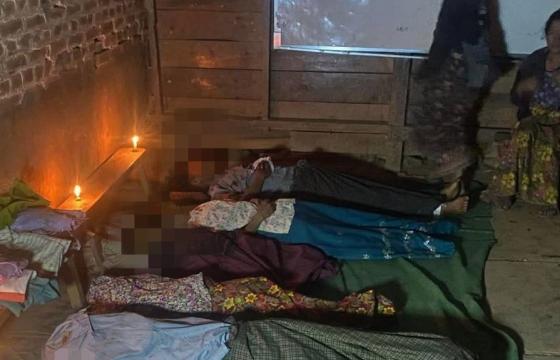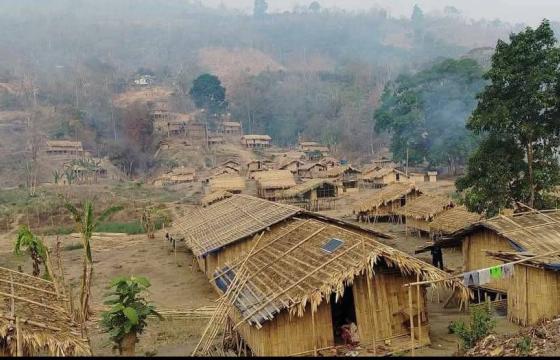The Union Election Commission (UEC) announced the cancelation of the general election in 94 village tracts in Chin State’s Paletwa Township on Tuesday, citing ongoing instability.
Lin Kyaw, secretary of the Chin State Election Commission, said voting would only take place in the township’s two towns, Sami and Paletwa, and in one village tract, Shin Letwa.
“If we build many polling stations, people will suffer a lot because of regional instability. The parties won’t suffer. Electoral candidates won’t suffer,” he told Khonumthung News.
There are a total of 102 village tracts in Paletwa Township’s two constituencies: 45 in Constituency 1 and 57 in Constituency 2. Voting will be held in just four wards in downtown Paletwa, three in Sami, and in Shin Letwa village tract.
Paletwa township has the largest population of any Chin State Township, with more than 50,000 eligible voters disenfranchised. Around 10,000 eligible voters are estimated to be able to still participate in the election.
Lin Kyaw said that since the remaining wards and village tract are spread out between both constituencies in the township, so they will still get representatives, but elected by a minority of voters. A total of 24 people from six political parties are running for election in the township.
“People can vote for five electoral candidates, which will cover the three parliaments. In this way, we can hold a successful election,” he said.
Salai Pai Nang, coordinator of the Khumi Affairs Coordination Committee (KACC), said that the UEC’s announcement shocked him.
“I feel so upset for local people. I think people have lost their citizenship rights. We feel that we are not equal to other ethnic people,” Salai Pai Nang told Khonumthung News.
According to the KACC, there have been no clashes between the Burma Army and the Arakan Army in 12 village tracts among the 94 where voting is canceled, and have urged the UEC to review their decision regarding voting in those areas.
On October 16, the UEC announced the cancellation of the election in nine townships in Rakhine State, six townships in Shan State and in hundreds of village tracts throughout Kachin and Karen states and Bago Region, as well as one in Mon State.







